40 what is parole
Parole - National Institute of Corrections Parole Parole, both a procedure by which a board administratively releases inmates from prison as well as a provision for post-release supervision, comes from the French word parol, referring to "word," as in giving one's word of honor or promise. Parole - Definition, Examples, Cases, Processes Definition of Parole Noun The conditional release of a prisoner from prison, prior to fulfillment of the maximum sentence. Verb The act of placing or releasing on parole. Origin 1610-20 Middle French (short for parole d'honneur: word of honor) History of Parole
Parole - Wikipedia Parole (also known as provisional release or supervised release) is a form of early release of a prison inmate where the prisoner agrees to abide by certain behavioral conditions, including checking-in with their designated parole officers, or else they may be rearrested and returned to prison.
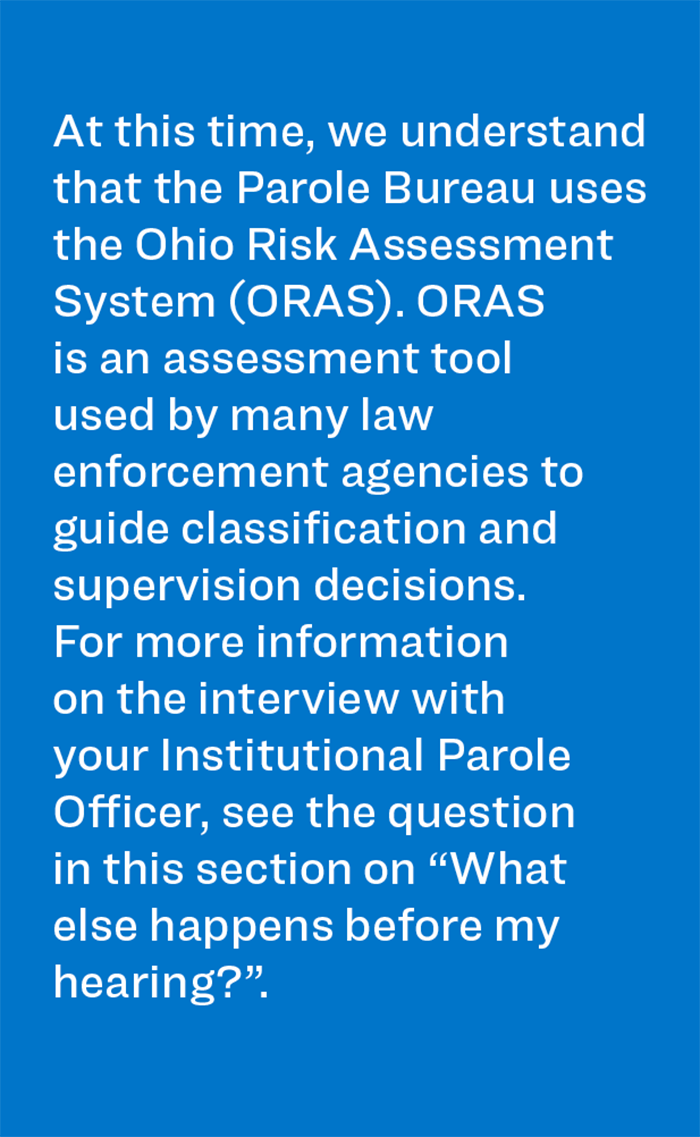
What is parole
How Parole Works - United States Department of Justice How Parole Works How Parole Works Eligible federal prisoners serving sentences of less than 30 years who have committed offenses prior to November of 1987 may, through an application process, receive an initial parole hearing within 120 days of commitment to a federal institution. PDF WHAT IS PAROLE? - Parole and Probation Administration WHAT IS PAROLE? It is the conditional release of a prisoner from correctional institution after serving the minimum period of prison sentence. WHO CANNOT BE GRANTED PAROLE? Generally, those sentenced to a term of imprisonment of one (1) year or less, or to a straight penalty, or to a prison sentence without a minimum term of imprisonment. Nine Things You Probably Didn't Know About Parole | The Marshall Project 6. Parole is not "early release." Many refer to parole as "early release," but the possibility of parole is built into the sentence when the judge hands it down. Judges hand down a range of years, like five-to-10 or two-to-seven. After serving the minimum number of years — or "min" — inmates are eligible for parole.
What is parole. What is parole? | Adult Parole Board Parole allows a prisoner to serve part of their sentence of imprisonment in the community. While on parole, a prisoner will be subject to parole conditions and under supervision. Serving part of the prison sentence in the community under parole supports the prisoner to reintegrate into the community with the aim of improving community safety. What Is the Difference Between Probation and Parole? Parole is a form of conditional release. If you get parole, you will be released from prison before your sentence is complete. However, you will still be in custody. You will just be serving your time in the community. Like probation, you will have rules you need to follow. You will also have a supervisor. This person is called a parole officer. Parole | Wex | US Law | LII / Legal Information Institute Parole is the conditional release of prisoners before they complete their sentence. Paroled prisoners are supervised by a public official, usually called a parole officer. If paroled prisoners violate the conditions of their release, they may be returned to prison. How Does Parole Work? - HG.org Parole is a complex system in the penal system that allows convicted prisoners to start a new life with supervision. Historically, the term parole meant by voice or by your word, and that is exactly what it is today. A person on parole is still serving their sentence, but they are allowed to live on the outside, provided they follow specific rules.
Parole legal definition of parole - TheFreeDictionary.com Parole The conditional release of a person convicted of a crime prior to the expiration of that person's term of imprisonment, subject to both the supervision of the correctional authorities during the remainder of the term and a resumption of the imprisonment upon violation of the conditions imposed. What is Parole? - New York Parole Appeals THE HISTORY OF PAROLE. The Division of Parole was established in the Executive Department on July 1, 1930. At that time, a full-time Board of Parole comprised of three members was created and paroling functions for all the state prisons were transferred from the Department of Corrections to the Division of Parole. What is parole? - LawInfo A parole board decides to release someone on parole, or it is done per statute. For example, the charge an offender is convicted of may require mandatory release or parole. A parolee can have several types of supervision statuses, such as: Active status: This means that the offender must check in with a parole officer Parole - Colorado Department of Corrections The Parole Board Hearing is a court hearing with the Parole Board Member as the judge. The offender will either wait for their Parole Board Hearing in jail or in the community on a summons. If the Parole Board revokes the offender, the offender will go back to a DOC facility for a specific amount of time.
Texas Board of Pardons and Paroles What is Parole Page Parole is a privilege, not a right. What is Mandatory Supervision? Mandatory Supervision is a legislatively mandated release of a prisoner to parole supervision when the combination of actual calendar time and good conduct time equal the sentence. Good conduct time is credited to an offender for participating in work and self-improvement programs. Parole Definition & Meaning - Merriam-Webster Medical Definition of parole : a conditional release given to a psychiatric patient in a hospital before discharge enabling the patient to visit freely various designated areas on the hospital grounds or beyond its limits Other Words from parole parolable adjective parole transitive verb paroled; paroling parole noun pa· role | \ pə-ˈrōl \ Humanitarian Parole | USCIS Parole allows an individual who may be inadmissible or otherwise ineligible for admission into the United States to be in the United States for a temporary period for urgent humanitarian reasons or significant public benefit. Eligibility Grading the parole release systems of all 50 states - Prison Policy Initiative A parole decision is often based on information provided by outside law enforcement agencies, or by prison gang intelligence officers, and that may be wrong or outdated. It is important that there be an opportunity to make the parole board's decision more accurate. Prosecutors should not be permitted to weigh in on the parole process. (3 pts.)
What is Parole? | LegalMatch What is Parole? Parole is an aspect of criminal sentencing that involves the early release of a defendant. While state laws may vary regarding parole, the convicted person must usually serve at least one third of their original sentence in order to be eligible for parole.
Humanitarian or Significant Public Benefit Parole for Individuals Outside the United ... Parole ends on the date the parole period expires, is revoked, or when the parolee leaves the United States or obtains an immigration status, whichever happens first. Although parole is temporary in nature, in some instances, a beneficiary may need to remain in the United States beyond the period of authorized parole.
Definition of Parole | Conditions of Parole | Parole Violation | Nolo Parole is conditional freedom for a prison inmate. The prisoner (called a "parolee") gets out from behind bars but must live up to a series of responsibilities. A parolee who doesn't follow the rules risks going back into custody (prison).
Parole Definition | US Immigration Glossary Parole is a permission granted by the Department of Homeland Security (DHS) to a foreign national that allows them to physically enter the United States yet still be considered to have not legally entered the country. A person paroled into the U.S. is treated in a legal sense as if he or she were still at the border seeking permission to enter.
What Is a Parole? - Meaning and Definition - Infotracer Glossary Parole is when a defendant is released early from their sentence to reintegrate themselves into society to have a fresh start. Individuals are usually not eligible for parole until they have served at least one-third of their sentence. Individuals who violate their parole terms end up having more severe criminal penalties in the future.
Frequently Asked Questions - United States Department of Justice A parole hearing is an opportunity for the offender to present his or her side of the story, and express their own thoughts as to why they feel they should be paroled. Many subjects come up during the course of the hearing.
What is parole? - Canada.ca The Parole Board of Canada ( PBC ), an independent administrative tribunal which reports to Parliament through the Minister of Public Safety, has exclusive authority, under the Corrections and Conditional Release Act ( CCRA ), to grant, deny, and revoke parole for offenders serving sentences of two years or more.
What is Parole? Parole is a way of letting approved prisoners serve part of their sentence in the community once the Board decides they are not an unacceptable risk to the safety of the community. Prisoners on parole are usually supervised and must comply with certain conditions in order to remain in the community.
Nine Things You Probably Didn't Know About Parole | The Marshall Project 6. Parole is not "early release." Many refer to parole as "early release," but the possibility of parole is built into the sentence when the judge hands it down. Judges hand down a range of years, like five-to-10 or two-to-seven. After serving the minimum number of years — or "min" — inmates are eligible for parole.
PDF WHAT IS PAROLE? - Parole and Probation Administration WHAT IS PAROLE? It is the conditional release of a prisoner from correctional institution after serving the minimum period of prison sentence. WHO CANNOT BE GRANTED PAROLE? Generally, those sentenced to a term of imprisonment of one (1) year or less, or to a straight penalty, or to a prison sentence without a minimum term of imprisonment.
How Parole Works - United States Department of Justice How Parole Works How Parole Works Eligible federal prisoners serving sentences of less than 30 years who have committed offenses prior to November of 1987 may, through an application process, receive an initial parole hearing within 120 days of commitment to a federal institution.




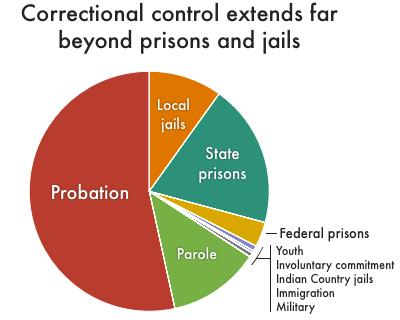
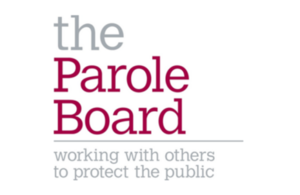
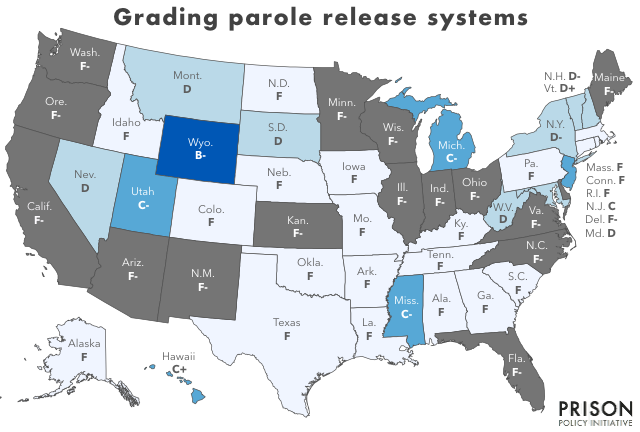


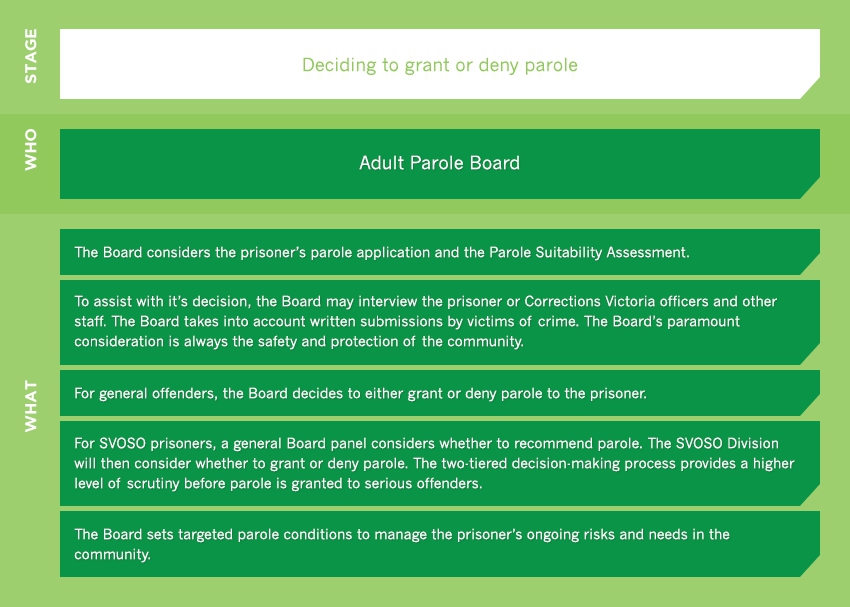




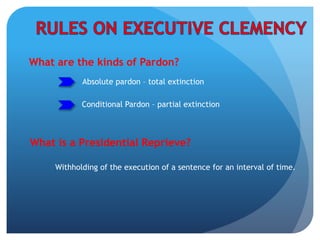













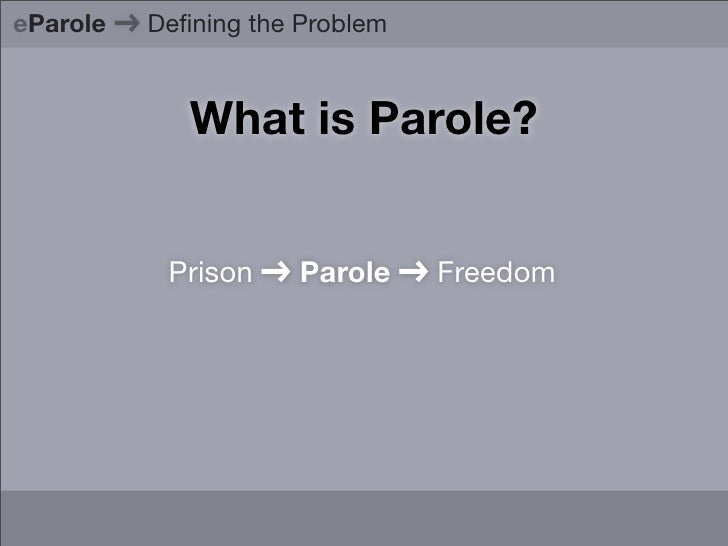

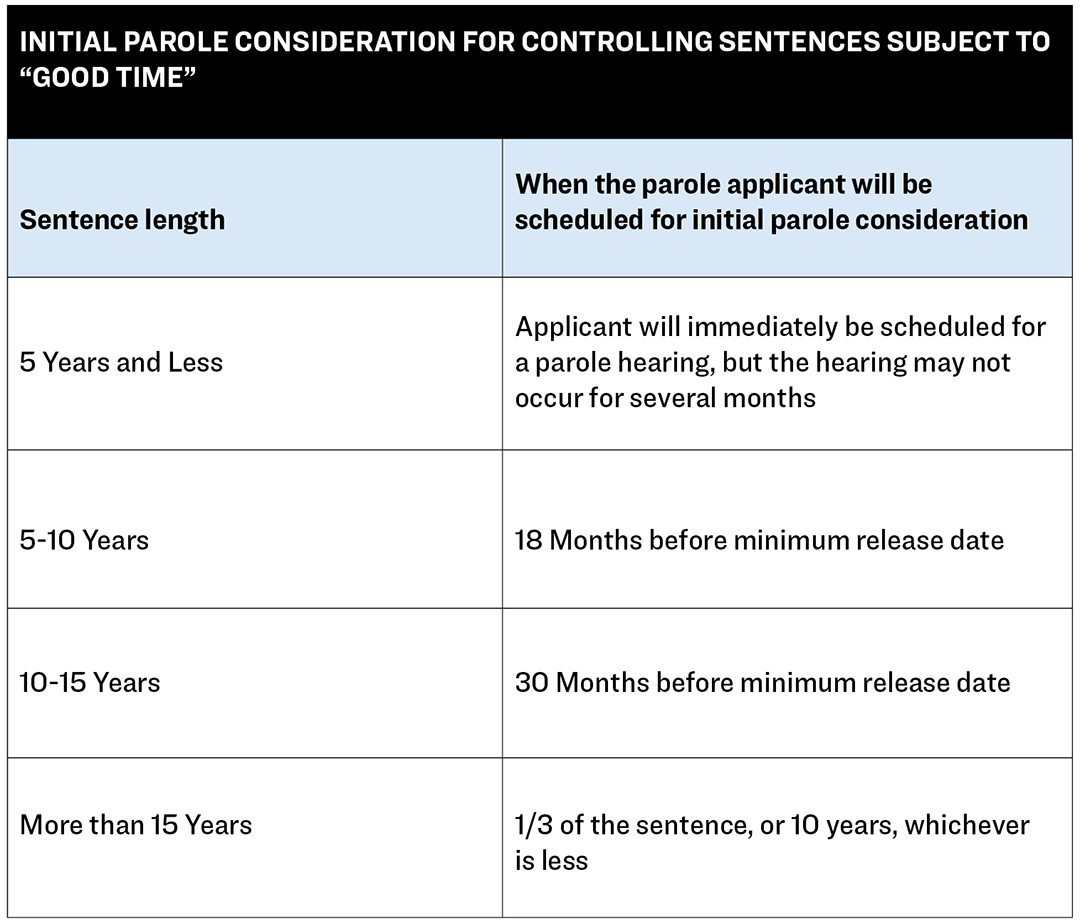


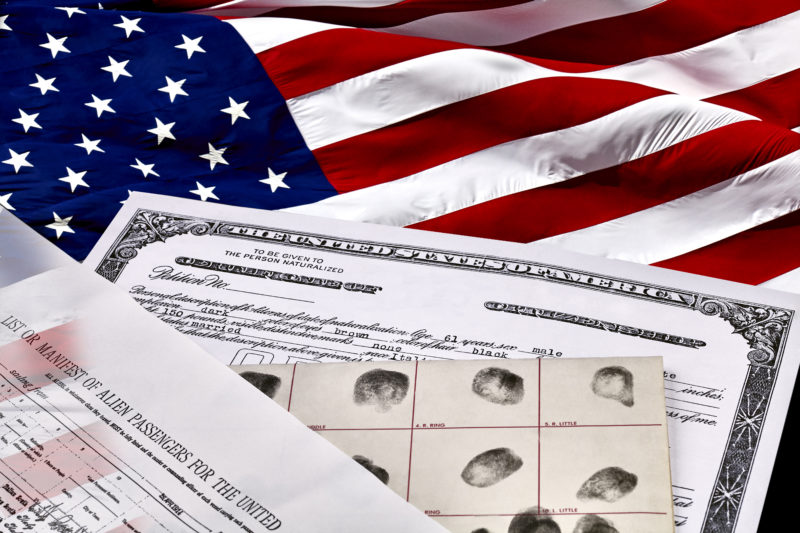

/probation-community-control-officer-974476-f6f17fd2465e44c7b138a151c376483f.png)
0 Response to "40 what is parole"
Post a Comment